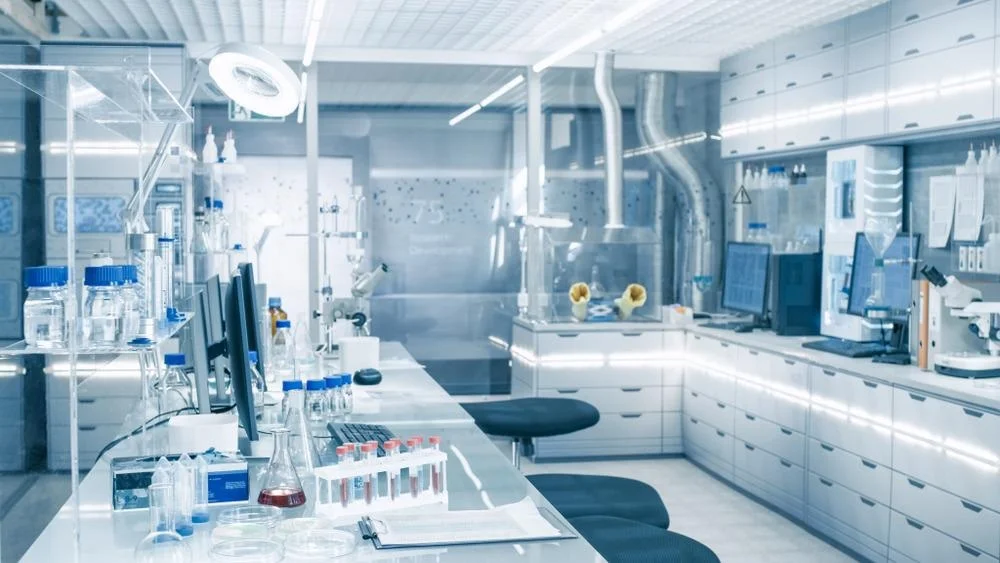Photovoltaic Material Organic Residue Verification
The Photovoltaic (PV) industry is witnessing exponential growth driven by the increasing demand for renewable energy. As a result, ensuring the quality and safety of PV materials has become paramount to meet regulatory standards and consumer expectations. One critical aspect in this process involves verifying the presence or absence of organic residues within photovoltaic materials. This verification ensures that the materials used in manufacturing solar panels are free from impurities that could compromise their efficiency and longevity.
The primary goal of our Photovoltaic Material Organic Residue Verification service is to provide comprehensive analysis using advanced analytical techniques. Our team utilizes state-of-the-art equipment such as Gas Chromatography-Mass Spectrometry (GC-MS) and Fourier Transform Infrared Spectroscopy (FTIR), which are capable of detecting even trace amounts of organic residues down to parts per million levels.
Our service covers a wide range of PV materials, including silicon wafers, encapsulants, backsheet films, and other components used in the production of solar cells. The testing process begins with thorough sample preparation, which involves cleaning and conditioning the samples according to industry best practices. This step ensures that any residual contamination from handling or storage is minimized.
The analytical techniques employed are selected based on their sensitivity and specificity towards identifying various types of organic compounds commonly found in PV materials. For instance, GC-MS can detect volatile organic compounds (VOCs) while FTIR identifies functional groups characteristic of organic molecules. By combining these methods, we ensure a multi-faceted approach to achieving accurate results.
Once the samples are analyzed, our experts generate detailed reports that include raw data along with interpretations and conclusions. These reports serve as valuable tools for quality control departments, R&D teams, and procurement personnel alike. They help stakeholders make informed decisions about material selection, process optimization, and potential corrective actions needed to maintain high standards.
Compliance is another crucial factor in our service offering. We ensure that all testing procedures adhere strictly to relevant international standards such as ISO 17025 for laboratory accreditation and ASTM D4938-16 for organic residue analysis in polymers used in photovoltaic devices. By adhering to these guidelines, we provide reliable data that can be trusted by regulatory bodies worldwide.
In summary, our Photovoltaic Material Organic Residue Verification service offers a robust solution tailored specifically for the PV industry. Through rigorous testing and meticulous reporting, we help clients achieve optimal performance from their PV materials while ensuring compliance with global standards.
Applied Standards
In order to ensure accurate and consistent results across different laboratories, it is essential that all analytical methods follow established international standards. For organic residue verification in photovoltaic materials, several key standards are widely recognized:
- ASTM D4938-16: This standard specifies the procedure for determining the amount of organic residues present in polymers used in photovoltaic devices. It provides guidelines on sample preparation, extraction methods, and quantitative analysis techniques.
- ISO 17025: Laboratories accredited to this standard must demonstrate technical competence through proficiency testing programs, regular internal audits, and adherence to quality management systems. This ensures that our results are reliable and repeatable.
- IEC 61215-1:2016: While not specifically focused on organic residues, this standard outlines the requirements for performance tests of photovoltaic modules. By incorporating IEC standards into our testing protocol, we ensure that our results align with industry best practices.
- EN 348: This European standard provides recommendations for good laboratory practice in analytical chemistry laboratories. Adhering to these principles enhances the credibility and accuracy of our test results.
By integrating these standards into our workflow, we maintain a high level of precision and consistency throughout the entire verification process.
Industry Applications
The Photovoltaic Material Organic Residue Verification service finds application in several sectors within the PV industry:
- R&D: Researchers often need to identify and quantify organic residues during early stages of material development. Our service provides insights into potential sources of contamination, helping them design cleaner processes.
- Quality Control: Manufacturing plants rely heavily on regular checks to ensure that incoming raw materials meet specified purity levels. By leveraging our expertise, they can minimize defects and improve overall product quality.
- Regulatory Compliance: Many countries have stringent regulations governing the use of certain chemicals in PV manufacturing processes. Our service helps companies navigate these requirements by providing evidence that their products comply with applicable laws.
- Sustainability Initiatives: As part of broader sustainability efforts, some organizations aim to reduce reliance on harmful substances during production. Through our verification services, they can track progress towards greener practices.
These applications underscore the importance of thorough organic residue analysis in maintaining efficient and environmentally friendly PV operations.
Eurolab Advantages
Our commitment to excellence sets Eurolab apart as a leading provider of Photovoltaic Material Organic Residue Verification services:
- Expertise: Our team comprises highly skilled scientists with extensive experience in analytical chemistry and PV materials. They stay updated on the latest research findings and technological advancements to deliver cutting-edge solutions.
- State-of-the-Art Equipment: Equipped with advanced instrumentation like GC-MS and FTIR, we offer unparalleled accuracy and sensitivity in detecting organic residues.
- Comprehensive Reporting: Beyond just numbers, our reports provide detailed explanations of the findings alongside recommendations for improvement or further investigation if necessary.
- Custom Solutions: Recognizing that every client has unique needs, we offer tailored services designed specifically to meet those requirements. Whether it's a one-time project or ongoing support, we have flexible options available.
- Fast Turnaround Times: Understanding the importance of timely delivery, we strive to complete each verification within agreed-upon deadlines without compromising on quality.
- Premium Support Services: In addition to basic testing, we also provide additional support such as consultation sessions and training workshops aimed at enhancing our clients' understanding of organic residue issues in PV materials.
With these advantages, Eurolab stands ready to assist your organization in achieving superior quality standards for its photovoltaic products.





